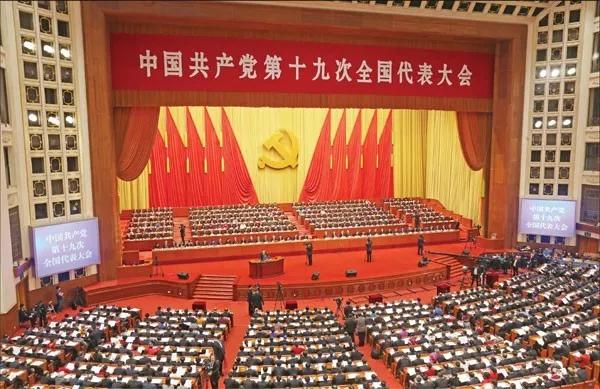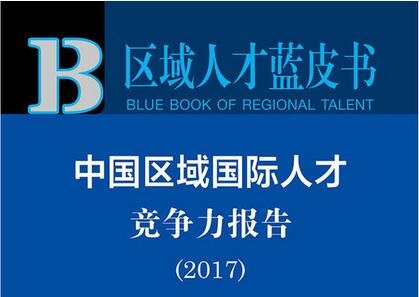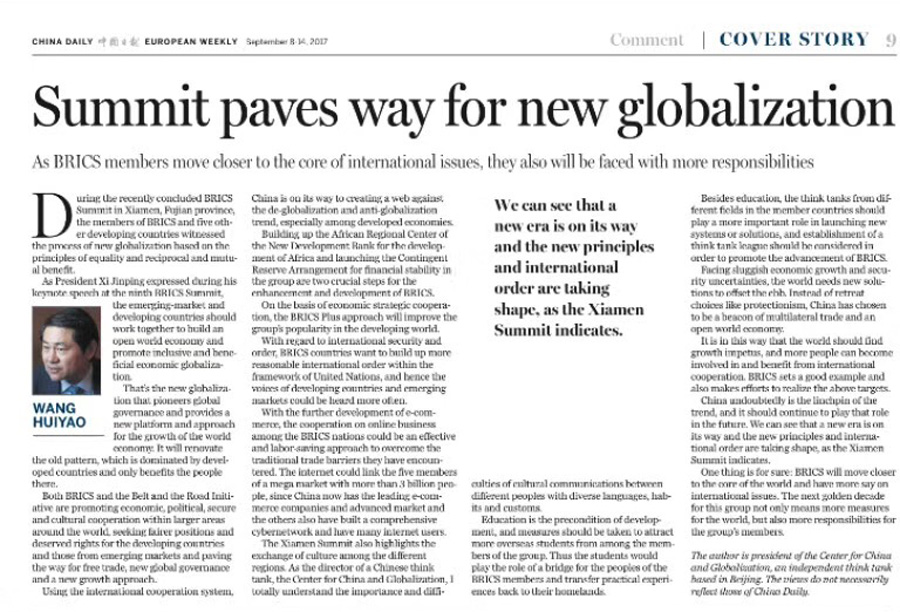CCG advocates the development of talent mobility. Committed to study of the globalization of talent, CCG conducts major research projects, organizes events, publishes books and research reports in the fields of international talent, international migration, overseas Chinese, and the situation of talent studying abroad and returning to China.
Impact on Policymaking Based on solid empirical research results, CCG proposes a series of policy recommendations to improve China's talent development and immigration system, and plays an active role in promoting major policies, such as the establishment of the National Immigration Administration.
CCG has published a series of Blue Books such as the Blue Book of Global Talent: Annual Report on the Development of Chinese Students Studying Abroad, Blue Book of Global Talent: Annual Report on Chinese International Migration, Blue Book of Regional Talent: Report on China’s Regional International Talent Competitiveness, and the IOM World Migration Report, as well as a series of English books with Springer, including China’s Domestic and International Migration Development, filling the gap in the field of international talent research in China.
CCG has established brand forums such as the China Talent 50 Forum and the Global Education 50 People Forum, and has hosted the China Overseas Returnees Innovation and Entrepreneurship Forum for many years.
CCG's initiative of establishing the Alliance of Global Talent Organizations is supported by relevant national ministries and the Beijing municipal government. CCG’s proposal was selected to participate in the first Paris Peace Forum and CCG held an event on the Alliance of Global Talent Organizations titled “Brain Drain: Making Better Use of the World’s Talent” at the second Paris Peace Forum.
-

【China Daily】China enters ’new era’
Xi Jinping, general secretary of the CPC Central Committee, said China has entered a "new era" as he set out his vision for the country at the opening of the nation’s biggest political meeting in five years.
October 22 , 2017 -

Wuhan sets university graduates minimum wage of up to $7,590
Wuhan, the capital of Central China’s Hubei Province, has announced it is setting the minimum wage for university graduates as high as 80,000 yuan ($7,590) per year to try to get its grads to stay and work in the city.
October 12 , 2017 -

Gao Wei:【 China Daily】IPR protection boosts internet economy
According to a China Internet Network Information Center report, by the end of last year China had about 731 million internet users and the total value of internet copyrights exceeded 560 billion yuan ($86.8 billion). But online piracy, too, has grown with the internet industry, harming IPR protection online.
September 25 , 2017 -

【China Daily】Drawing top workers a problem
With high-end workers leaving and insufficient high-end foreign personnel, China lags behind the world in attracting an international workforce and urgently needs to take action to solve the problem, a report has found.
September 20 , 2017 -

Wang Huiyao: Summit paves way for new globalization
As BRICS members move closer to the core of international issues, they also will be faced with more responsibilities During the recently concluded BRICS Summit in Xiamen, Fujian province, the members of BRICS and five other developing countries witnessed the process of new globalization based on the principles of equality and reciprocal and mutual benefit. As President Xi Jinping expressed during his keynote speech at the ninth BRICS Summit, the emerging-market and developing countries should work together to build an open world economy and promote inclusive and beneficial economic globalization.
September 11 , 2017


